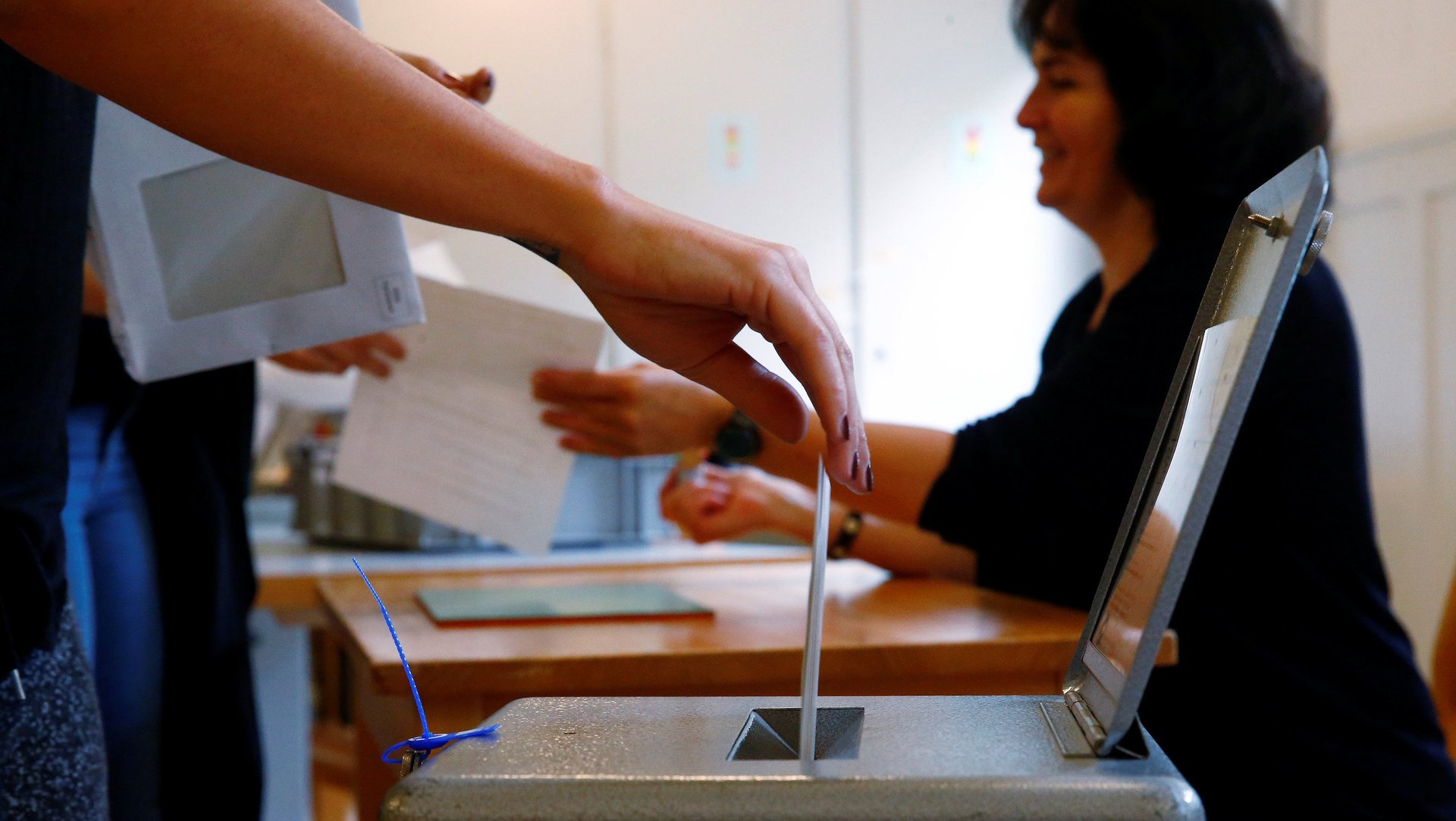Switzerland has rejected the idea of universal basic income
The eyes of the world were on Switzerland today (June 5) as the country voted on whether to give each of its citizens a guaranteed basic income of 2,500 Swiss francs ($2,554) a month.


The eyes of the world were on Switzerland today (June 5) as the country voted on whether to give each of its citizens a guaranteed basic income of 2,500 Swiss francs ($2,554) a month.
The proposal appears to have been overwhelmingly defeated: According to polling projections from a Swiss broadcaster, some 78% of the country has voted against the idea.
Rejection doesn’t exactly come as a surprise. The proposal, which was voted upon today because it’d secured the 100,000 signatures necessary under Swiss law to be put on a nationwide ballot, had a hefty share of critics. The relative ease of putting issues to a national referendum is a regular feature of Switzerland’s approach to direct democracy.
But despite its failure, the referendum was still significant, raising the question of income amid a time of rising inequality, stagnant wage growth in many rich countries and widespread uncertainty about the future of employment.
Supporters of UBI argue that giving citizens an allotted sum every month can help fight poverty, stoke economic demand and help small businesses. Opponents counter that UBI costs far too much and could also keep people from seeking employment.
Debates are sure to continue. Finland is currently weighing the idea of giving basic income to people who make less than a certain amount. Some tech leaders in Silicon Valley are very keen on UBI. Startup accelerator Y Combinator just began an experiment on basic wage with 100 families in Oakland, California, which it hopes can serve as a model for the US as large.